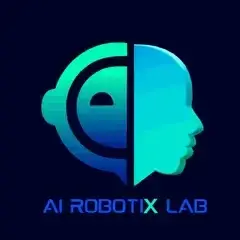Introduction
Artificial Intelligence (AI) is set to transform healthcare in unprecedented ways. With its ability to analyze large datasets, recognize patterns, and make predictions, AI is poised to revolutionize diagnosis, treatment, patient care, and research. As we look towards the future, the integration of AI in healthcare promises not only to enhance the efficiency of medical services but also to make them more accessible and personalized.
The Current State of AI in Healthcare
AI’s journey in healthcare has been marked by significant milestones. From machine learning algorithms that can interpret medical images to AI systems that can predict patient outcomes, the technology has already begun to make its mark.
Key Developments Include:
Diagnostic Algorithms: AI systems that can diagnose diseases from medical images, sometimes with greater accuracy than human doctors.
Drug Discovery and Development: AI’s ability to process vast amounts of biological data is speeding up the discovery of new drugs.
Personalized Medicine: Using patient data to tailor treatments to individual patients.
Robot-Assisted Surgery: Robots that assist surgeons with precision and control beyond human capabilities.
Predictions for the Future of AI in Healthcare
1. Advanced Diagnostic Tools
AI will become more sophisticated in diagnosing complex conditions, potentially identifying diseases before symptoms appear.
2. Enhanced Patient Care
AI-powered tools will provide continuous monitoring and tailored care plans for chronic diseases, improving patient outcomes.
3. Telemedicine and Remote Monitoring
AI will enhance telemedicine, offering more accurate and immediate assessments, making healthcare more accessible, especially in remote areas.
4. Predictive Analytics in Public Health
AI will play a crucial role in predicting and managing public health crises, analyzing trends, and helping to prevent outbreaks.
5. Customized Treatment Plans
AI will enable more personalized medicine, considering individual genetic makeup, lifestyle, and environmental factors.
6. Ethical AI and Data Privacy
As AI becomes more integrated into healthcare, ensuring the ethical use of AI and protecting patient data will be paramount.
Challenges and Opportunities
1. Data Quality and Accessibility
The effectiveness of AI in healthcare depends on the quality and accessibility of data, requiring standardized and interoperable data systems.
2. Ethical and Legal Considerations
Addressing issues related to AI decision-making, patient consent, and liability will be crucial.
3. Healthcare Workforce Adaptation
Training healthcare professionals to work alongside AI will be essential, as will be addressing fears of job displacement.
4. Global Health Disparities
Ensuring that AI in healthcare benefits people globally, not just in wealthy countries, will be a significant challenge.
Conclusion
The future of AI in healthcare is bright, offering the potential for more accurate diagnoses, personalized treatments, and improved patient outcomes. However, realizing this potential will require careful navigation of technical, ethical, and legal challenges. By addressing these challenges head-on, the healthcare sector can harness the power of AI to create a future where healthcare is more efficient, effective, and equitable for all.
